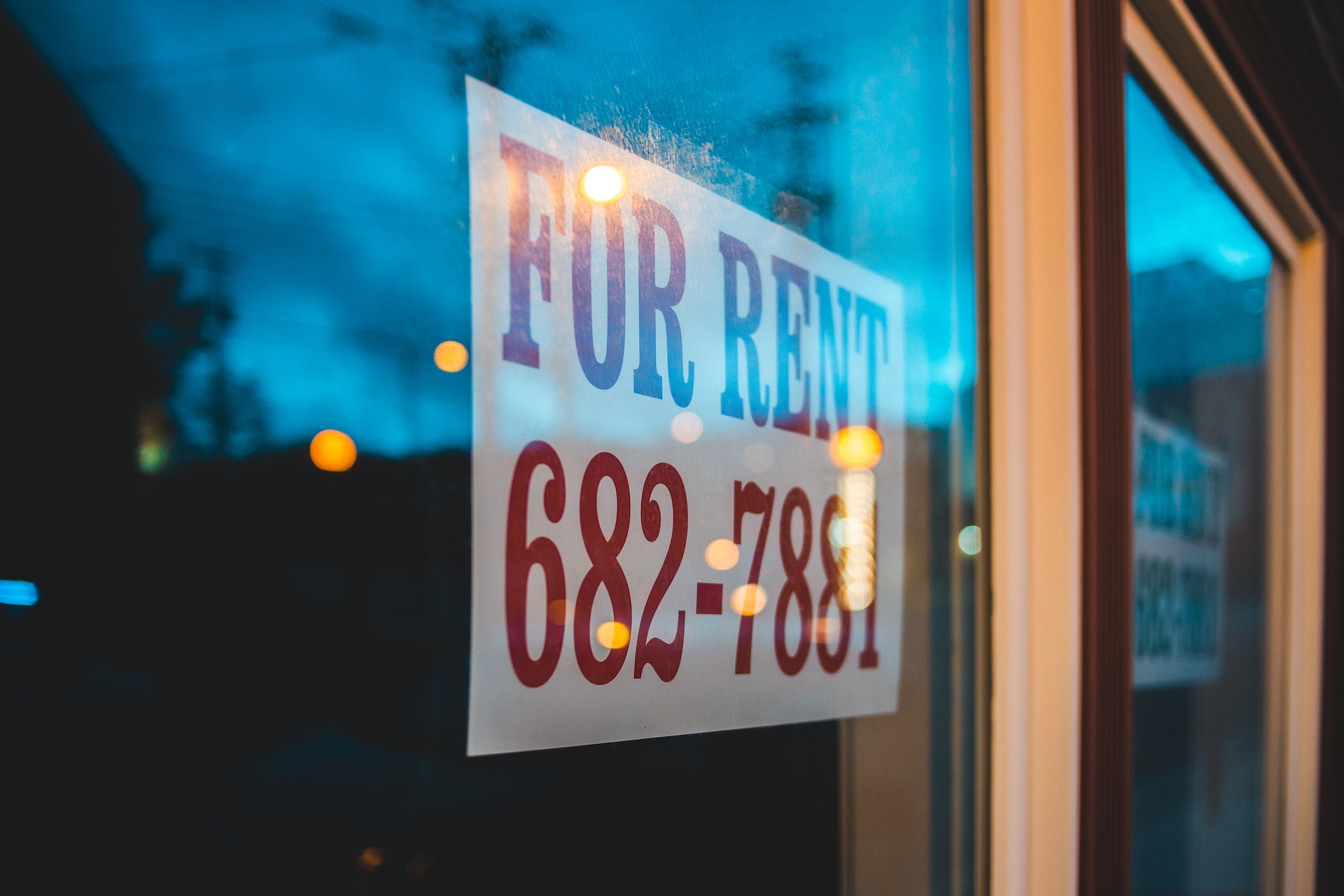Navigating the world of commercial real estate can feel overwhelming, especially when you are preparing to lease a space for your business. Understanding the terms, knowing what you need in a property, and approaching negotiations with a clear strategy are essential steps that put you in a strong position as a business owner.
Taking your time to explore different options and being prepared to negotiate can make a significant difference in securing a favorable lease. Keeping detailed records of all agreements and understanding your financial standing will help you build confidence throughout the process.
Key Takeaways
- Understand key terms and assess your needs before leasing.
- Compare offers and negotiate terms with landlords.
- Maintain clear documentation of all agreements.
1. Begin with Core Concepts of a Commercial Lease

When reviewing a commercial lease agreement, you’ll need to look closely at the lease term—this defines how long you have rights to use the space. Examine not just the start and end dates, but also find out if there are options to extend, renew, or end the agreement early.
You’ll also encounter several types of commercial leases, such as a gross lease, where the landlord covers most building expenses, and various forms of net leases (single, double, and triple net). In a triple net lease, for example, you are typically responsible for property taxes, insurance, and maintenance in addition to base rent.
Key details to check include responsibilities for upkeep, how often rent payments are due, and what costs are excluded or included. Make a list of what the space offers—its size, any built-in restrictions, and if it comes furnished—to make sure the lease fits your business needs. This clarity helps you evaluate each lease on its real merits; thorough understanding prevents costly misunderstandings.
2. Define Your Priorities and Requirements for Your Business Space
To secure a commercial space that truly fits your operations, start by listing your essential and preferred features. Consider elements such as how much square footage you need, how many private offices or common areas are required, and whether amenities like a conference room are necessary. Decide if your business would benefit most from a ground-level retail space or an upper floor office with a view.
Assess the importance of lease flexibility. A short-term lease can be ideal for startups, while established businesses might prefer the stability of a long-term lease. Evaluate your expected foot traffic—especially crucial for retail tenants—and make sure the rent payment structure aligns with your financial planning. Use a table like this to organize your needs:
| Feature | Must-Have | Nice-to-Have |
|---|---|---|
| Square Footage | ||
| Number of Offices | ||
| Conference Room | ||
| Ground Floor Location | ||
| High Foot Traffic Area | ||
| Short/Long-Term Lease | ||
| Flexible Rent Terms |
3. Compare Multiple Lease Offers – Don’t Commit to the First Option
You should always evaluate several lease options before making a commitment. By taking your time and reviewing what different landlords are offering, you increase your chances of finding a lease that suits both your needs and your budget.
When comparing leases, review these key areas:
- Lease Duration: Are you being asked to sign for a few years, or is a more flexible term available? A shorter lease may allow you to adapt as your business grows.
- Location Quality: Choosing a prime location like a Class A building may mean higher rent, but a less central site could save you money if visibility isn’t your top priority.
- Included Amenities & Expenses: Feature Included in Rent? Additional Fee? Maintenance Yes/No Yes/No Insurance Yes/No Yes/No Common Area Upkeep Yes/No Yes/No Parking & Storage Yes/No Yes/No
Pay close attention to possible rent increases. Some leases have yearly adjustments, while others lock in your rate. Reviewing details like maintenance, insurance provisions, and who covers common area maintenance can help you avoid unwelcome costs.
4. Negotiating with the Landlord—They Value Your Tenancy and May Accommodate Your Needs
During lease negotiations, keep in mind that landlords are often eager to secure stable tenants. You should not hesitate to discuss terms that better suit your needs. Open conversations can lead to adjustments in rent, lease length, or caps on future rent increases.
Consider these points when engaging with the landlord:
- Request longer lease terms if you want stability, and see if discounts are available for such commitments.
- Discuss future rent adjustments and try to secure fixed rates or limited increases to protect your budget.
- Propose changes to other conditions such as maintenance responsibilities or renewal options.
Remember, making reasonable requests during lease negotiation is common practice. Landlords frequently expect some level of negotiation and may be flexible to attract and keep reliable tenants. For more practical tips, explore this guide on negotiating a commercial lease effectively.
5. Prepare a Detailed Business Plan and Thorough Financial Records for the Landlord
Before starting your search for commercial space, ensure you’ve prepared a complete business plan along with up-to-date financial documents. Clear documentation demonstrates your ability to meet rent obligations and builds your credibility with potential landlords.
Key items to provide:
- Executive summary and business strategy
- Current balance sheet and profit & loss statement
- Cash flow projections
Bring these materials to lease discussions. Being organized and transparent can strengthen your position and may help you achieve more favorable lease terms.
6. Document All Terms, Amendments, and Negotiated Changes in Writing
Securing written documentation is essential whenever you’re working through property negotiations. By making sure every agreement and adjustment is clearly recorded, you protect your interests and establish a reliable reference point for all parties involved. Verbal agreements can often be forgotten or misunderstood, especially in complex matters like a letter of intent, subleases, or permitted use provisions.
During negotiations, the most frequently updated terms include options to renew, tenant improvements, and security deposit requirements. If you agree to an early termination clause, modifications to exclusive use rights, or specific rules around subletting, ensure these are reflected in the final written contract. All changes should be precisely described and acknowledged by everyone involved, minimizing the risk of disputes later.
Best practices to follow:
- Use tracked changes or redlined versions when editing draft agreements.
- Attach a change log or amendment summary for ongoing negotiations.
- Include explicit language confirming mutual understanding of all changes.
- Require signatures from every party for amendments to be valid.
| Term | Should Be in Writing? | Examples of What to Include |
|---|---|---|
| Option to Renew | Yes | Notice deadlines, renewal terms |
| Tenant Improvements | Yes | Scope, timeline, responsibility for costs |
| Subletting | Yes | Approval process, permitted subtenants |
| Security Deposit | Yes | Amount, return conditions, deductions |
| Permitted Use | Yes | Approved uses, restrictions |
| Exclusive Use | Yes | Rights, limitations, enforcement |
| Early Termination | Yes | Procedure, penalties, notice period |
| Renovations | Yes | What’s allowed, standards, approvals |
| Subleases | Yes | Conditions, landlord rights, duration |
Formalizing all negotiated changes is more than a best practice—it’s often a legal requirement. Some agreements include specific clauses stating that amendments must be in writing and signed by both parties to be valid. This protects everyone from misunderstandings and helps maintain a clear, up-to-date record of your contract’s status. For more on this process, see how to create a proper contract amendment or document negotiation changes effectively.
Frequently Asked Questions

What important elements should you focus on when leasing a retail property?
Pay special attention to the rent amount and payment terms, including any scheduled increases. Review responsibility for repairs, maintenance, and operating expenses carefully. Consider the lease duration, renewal options, and whether there are clauses for early termination or assignment. Evaluate other essential points, such as exclusivity rights and restrictions on competitors in your immediate area.
How can you use a written proposal to support your commercial lease talks?
A well-crafted letter can clarify your preferences and set clear expectations with the landlord. Highlight your desired changes, such as rent adjustments or specific terms, and always back your requests with reasons or comparable market data. This document also becomes part of the negotiation record, providing reference as talks progress.
What approaches help you secure periods without rent in a business lease?
Negotiating for a rent-free period works best if the space needs substantial upgrades or has sat vacant for some time. Be open about improvement budgets and the time needed to get the space ready. Referencing market trends or other comparable leases at similar sites can help you request a realistic concession. Landlords may agree to rent-free periods as a compromise, especially during tenant improvement or fit-out phases.
Which items should top your checklist for negotiating commercial leases?
Your key priorities should include:
- Base rent and escalation clauses
- Operating and maintenance expenses
- Length of lease and renewal provisions
- Personal guarantees or security deposits
- Subletting and assignment conditions
- Early termination rights
- Responsibility allocation (insurance, repairs, taxes)
Using a checklist ensures you do not overlook critical points that could affect your overall costs or flexibility. More guidance is available in this negotiation tips article.
Is it possible to revise lease conditions after signing, and what is the process?
You can sometimes renegotiate a lease after both parties have signed, but both sides need to agree on proposed changes. The process may involve formal written requests and a willingness to compromise. Be prepared to reference changes in your business, the economy, or market rental rates as justification for your renegotiation.
What steps should you take for a smooth lease renewal negotiation?
Start the renewal process well before your current lease expires to give yourself leverage and time to explore your options. Compare current market rents with your existing rate and prepare to negotiate on this basis. Clearly identify which terms you want to adjust—such as rent, extensions, or responsibilities—and communicate your requests professionally and in writing. Consult legal or real estate professionals for advice on complex issues or new terms.
Would you like to publish a free blog post on this site?
Are you a real estate professional, property manager, or industry expert with valuable insights to share? We welcome guest contributors who can provide unique perspectives and actionable advice for our community of property investors and managers.
Guest posting is an excellent way to share your expertise while building backlinks and connecting with our engaged audience of real estate investors and professionals. Best of all, there’s no charge to publish your post on our site!

Master the art of real estate investing with The Real Estate Property Management Guide: Premium Edition – your comprehensive roadmap to successful property management.
Whether you’re a novice investor or seasoned professional, this guide covers everything from selecting the right investment properties to tenant management and property marketing.
The author, Jeff Rohde writing as Jeffrey Roark, is a professional with over 25 years of real estate experience. This Premium Edition includes the valuable bonus book Investment Real Estate Analysis: A Case Study to help you identify hidden opportunities and evaluate properties like a professional.
Learn practical, actionable strategies for both residential and commercial properties, from single-family homes to office buildings and shopping centers.
Don’t just buy property – learn how to manage it successfully and maximize your investment potential.
Grab your copy now from your favorite bookseller:
- Amazon (Basic Edition, does not include Investment Real Estate Analysis: A Case Study)
- Books2Read for Apple, Barnes & Noble, Kobo, Scribed, and 8 more sellers with both eBook and paperback options available ((Premium Edition, includes Investment Real Estate Analysis: A Case Study)
- Payhip as a downloadable PDF (Premium Edition)
Ready to take your business to the next level?
- Subscribe to our newsletter
- Visit the learning center
- Learn more about our consulting services



